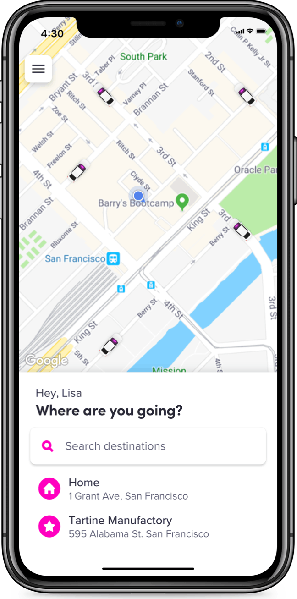Hot on the heels of the pilot launch of Uber’s offering that combines rides, UberEats deliveries, bikes, and scooters in a single monthly plan, Lyft is kicking into high gear its effort to convert one-time users to subscription customers. To this end, it today took the wraps off of Lyft Pink, a new membership for riders with elevated access, savings, and perks designed to “unlock all their city has to offer.”
Lyft Pink costs $20 per month — $5 cheaper than Uber’s plan, which is currently being tested in San Francisco and Chicago — and it offers a 15% savings on all car rides along with complimentary bike and scooter rides. Members get priority pickup at airports and unspecified rental car perks, plus “surprise” offers and upgrades and waived lost and found fees.
The wait list will open on October 29, after which Lyft Pink begins rolling out until it’s fully available nationwide later this year.

June 5th: The AI Audit in NYC
Join us next week in NYC to engage with top executive leaders, delving into strategies for auditing AI models to ensure fairness, optimal performance, and ethical compliance across diverse organizations. Secure your attendance for this exclusive invite-only event.
“Lyft Pink is a no-brainer for regular riders who take 2-3+ rides per week and who are looking to make the most of their time and money,” wrote Lyft in a press release. “This is the next step toward Lyft’s vision of cities designed around people not cars. With Lyft Pink, riders can travel smarter across Lyft’s transportation network of shared rides, bikeshare systems, electric scooters, car rentals and transit partnerships — all within one app. [It] provides the best value, best experience — the best way to Lyft.”
Lyft Pink joins Lyft’s two existing special pricing promotions: Lyft Ride Passes and the subscription All-Access Plan. Ride Passes, which are currently invitation-only, grant access to a specific promotional value for a set number of rides taken during a certain timeframe (e.g., $5 off of 10 rides or $8 flat fare on 10 rides up to a $20 max ride charge). As for the All-Access Plan, it starts at $299 a month and includes 30 single-passenger and carpooling rides costing up to $15 each, with riders paying the difference for rides that exceed $15.
A multimodal transportation subscription model is in line with Lyft’s pledge to cut down on single-rider bookings in the next months. The ride-sharing market makes up around 0.5% of all vehicle miles traveled, but the company’s hoping to boost that metric to 80% in 20 years.

Lyft outlined its strategy back in July, with the ambitious goals of taking 1 million cars off the road by 2019 and increasing the percentage of shared rides taken by 50% from one third today. In a small step toward it, the company launched a revamped mobile experience in September that spotlights bike, shared ride, scooter, subway, bus, rental, and walking options in cities around the U.S., and which adds protected scooter- and bike-friendly routes.
“At Lyft, we’re working toward a future where cities are centered around people, not cars,” said Lyft cofounder and president John Zimmer in a previous statement. “The changes we’re making today will unlock better transportation solutions — whether that’s a trip on public transit, a bike ride or a shared Lyft — for people in cities around the country.”
Lyft dipped its toes in the electric scooter market back in September 2018 with the rollout of a pilot service in Denver. In December, it brought additional scooter fleets to Arlington County (Virginia), Atlanta, Austin, Los Angeles, Nashville, San Diego, Santa Monica, and Washington, D.C., preceding the debut of a Segway-made pink-wheeled scooter that can hold a charge for 35 to 40 miles.
As for Lyft’s bike-sharing business, its catalyst was the company’s roughly $250 million November 2018 purchase of Motivate, an operator of sponsored bike-sharing programs in metros like Chicago, San Francisco, Oakland, New York City, Washington D.C., and Portland. That same month, Lyft revealed it would invest over $100 million in Motivate’s Citi Bike over the next five years, more than tripling the number of available bikes in New York City alone. And in June, Lyft relaunched Ford GoBike — the Bay Area docked bicycle-sharing company Ford kicked off in partnership with Motivate — as Bay Wheels, with new electric bikes sporting pedal assist and stronger antitheft locks.
Prior to the Lyft acquisition, Motivate operated eight bike-share systems across the U.S., 12,000 of which were concentrated in New York. Lyft previously said it expects to bolster the Citi Bike fleet alone by 28,000 bikes, and to up the number of its docked and dockless bikes in the Bay Area to 8,500.

